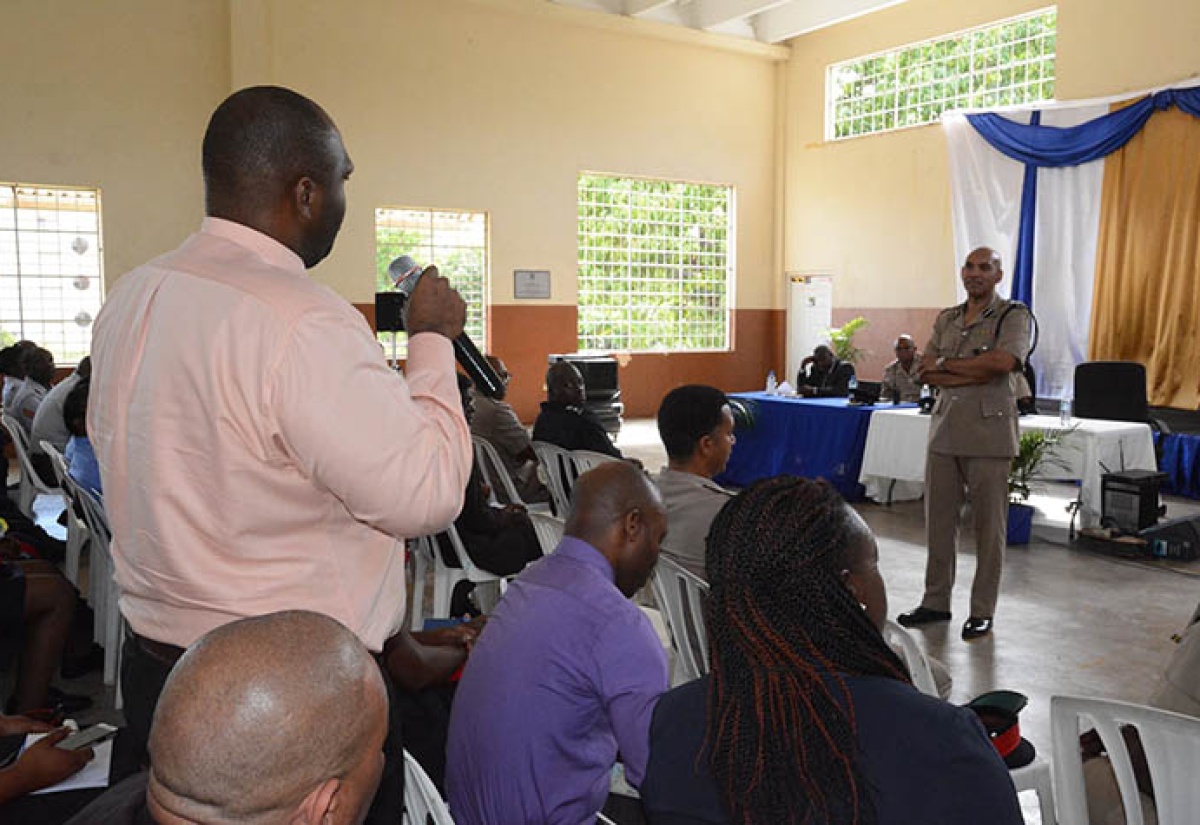JCF Strengthening Community Policing Strategies
By: , May 24, 2018The Key Point:
The Facts
- Speaking with JIS News, Commissioner of Police, Major General Antony Anderson, says the police cannot succeed in solving or preventing crime without the assistance of the community.
- Major Anderson explains that police officers are currently being trained to enable them to effectively filter the complaints received.
The Full Story
The Jamaica Constabulary Force (JCF) is strengthening its community policing strategies as part of measures to reduce criminal activities in the country.
Speaking with JIS News, Commissioner of Police, Major General Antony Anderson, says the police cannot succeed in solving or preventing crime without the assistance of the community.
He informs that a system is to be put in place to allow the public to make complaints and provide feedback on ways to improve the quality of service the JCF offers.
Major Anderson explains that police officers are currently being trained to enable them to effectively filter the complaints received.
“This we know will improve the quality of the relationships in the communities and the wider public,” he states.
The Police Commissioner also mentions that the JCF is to strengthen community-based networks as part of plans to reinforce crime-prevention.
“We will be utilising civilian knowledge of crime, integrating active neighborhood watches and a variety of other techniques, as opposed to relying solely on police patrols, in a big step to improving flow of information,” Major Andersons states.
He adds that the JCF will be projected as a force that encourages public police partnership.
“The JCF understands the need to involve the community, the local government and the police to work together to tackle crime… . This united approach will see results. People want to talk and we (JCF) will be creating better relationships with these communities to let them feel safer to talk to us,” Major General Anderson shares.
In giving support to the importance of community policing, Professor (Emeritus) Criminology and Public Safety at the University of the West Indies (UWI), St Augustine, Ramesh Deosaran, states that the initiative will address issues such as civilian control and make it easier for the officer to enforce public order.
“It is policing whereby the people take active part in their own affairs. The police are not to be seen as a problem or stranger whose presence stands for danger but as partners in development, and those members of the community are co-producers of justice and quality police service,” Professor Deosaran adds.
He was speaking at the recently concluded Association of Caribbean Commissioners of Police (ACCP) conference held in Montego Bay, St. James.
Professor Deosaran notes that introducing a system that gives people an option to share their thoughts, give feedback and interact with the police is the first step to encouraging public participation.
He proposes a scientific intervention to integrate community policing with the police service.
“The numbers won’t lie, and right away you can see where the pitfalls are when you have active polls… to see if people’s needs are being serviced by our police force,” Professor Deosaran notes.
He states that making a complaint at the police station about the level of satisfaction will not only highlight the gaps but also encourage dialogue with the inspector or sergeant in charge to find out on their side what the problems were in dealing with a particular report in the correct way.
“It sounds simple, but it opens the door that will help the JCF and other law-enforcement bodies assess the administrative readiness of the organisation,” he adds.
Meanwhile, Canadian Superintendent, Michael Slack, who addressed the ACCP audience about public trust in policing, says trust is vital in measuring citizen satisfaction effectively.
“The police must engage the public through the use of tools such as community walk-through, understanding the priorities and preferences of different segments of society and community social development programmes to get the support of the people to solve crime,” he points out.
Superintendent Slack also urges policing agencies to ensure “visible” accountability in all aspects of service delivery and member conduct, via both internal and external processes.


